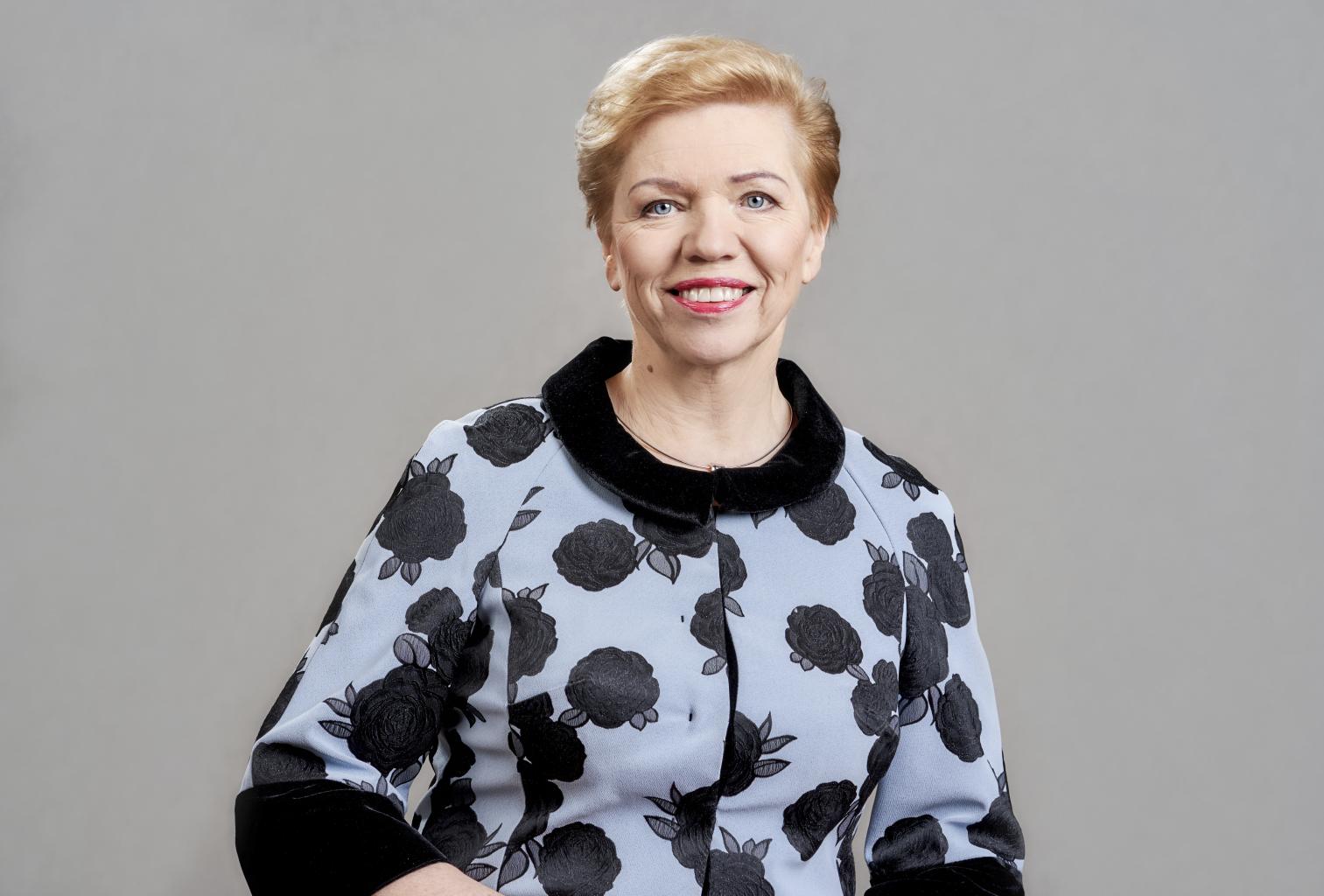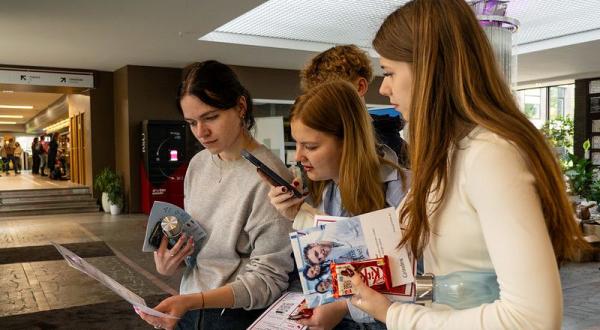Prof. Koķe on Current Issues in Higher Education: the Positive Effects of the Pandemic and the Multiversities of the Future
The last year has brought changes to many areas in our lives. This naturally also includes education and how we think about studying. In order to find out what changes have taken place in higher education in Latvia since the beginning of the pandemic, how universities have modernised the contents and format of their study programmes and what studies could be like post-COVID-19, the Rīga Stradiņš University (RSU) Alumni Association invited Professor Tatjana Koķe, the Vice-Rector for Studies at RSU, to a conversation. Prof. Koķe has worked in the field of education for her entire career, not only in Latvian level, but also at a European level.
More digital and more independent
‘The pandemic caught us all by surprise, but it was clear to us that education should not stop. Even though people can study at any point in their lives, they have to get the opportunity to do so at the moment when they have found time for it,’ says the professor, who has been the RSU Vice-Rector for Studies since 2013. She goes on to say that the university was actually ready for the sudden changes:
‘We have been moving towards creating video recording of lectures very purposefully since 2014. This is both because we have so many international students and because a large number of health care students work in medical institutions on a daily basis and cannot always attend lectures on-site.
We have been looking for opportunities to make study materials more accessible, but without at the same time imposing a specific time frame. The university started using the programme Panopto and since lecturers seemed to like it, we started to actively record lectures.’
‘Last year, when the pandemic began, all the preparations we had already done served us well. We were able to observe how remote lectures were being recorded together with our IT specialists almost immediately after the pandemic had been announced. I won’t deny that it hasn’t been easy and without difficulties, however. The pressure and stress have been constant until the end of the 2020 spring exam session. Our IT department has provided trainings and assistance to lecturers almost 24/7 and the Centre for Educational Growth has also provided lots of support. They immediately set up a support platform for distance learning that encouraged lecturers to conduct classes online. We were glad that our students were ready for these challenges too. My lectures have always been well attended, but thanks to video lectures, attendance reached 100%, and remained the same until the end of the testing period,’ says Prof. Koķe.
Although the past year has been a challenge for both staff and students, it has provided a great boost to implement digital tools in higher education and has encouraged students to become more independent.
Social sciences to be 50% remote and 20% of medical studies
Questionnaires have been sent out to understand what the approximately 9,000 students at across about 60 study programmes at RSU thought of the study process during the pandemic. Feedback was also collected during certain Zoom sessions held by the deans in order to find out what kind of assistance students needed during the pandemic. ‘I feel strongly that our lecturers have handled the theoretical part of studies very well. Materials are becoming more and more diverse and adapted to students’ needs, says the professor. ‘Our library received praise during international accreditations for what they have been able to provide. The library was able to provide students with access to literature during exam sessions while observing all safety requirements throughout the pandemic. We really made an effort to facilitate the process as much as possible.’ The Faculty of Dentistry experienced the biggest difficulties, but they were granted permission to work on-site as soon as it became possible. Prof. Guntis Bahs, the Vice-Rector for Health Studies, has done great job of communicating with the Ministry of Health to ensure clinical practice placements for 6th-year medical students at Latvian hospitals,’ says Prof. Koķe. ‘Everyone longs for personal contact. Even children are now saying they want to go back to school. I have been working in the education sector my entire life and have only rarely heard such enthusiasm.
We have learned a lot and want to keep certain good practices in place. We propose to guide the heads of study programmes so that up to 50% of studies in the social sciences can be implemented remotely, and about 20% in healthcare studies. It is not necessary to regulate this strictly, but we want to maintain this practice,’ says the Vice-Rector.
A book on genetics for schoolchildren and other innovations
RSU has implemented a targeted scholarship from the Boris and Inara Teterev Foundation, which has been granted to 111 lecturers since 2014. The funding gone to modernise study courses, and this external incentive has been crucial, especially during the pandemic when the new reality called for changes to the contents and format of courses, the Vice-Rector for Studies points out. During this time, the scholarship has promoted innovations in contents, methods and evaluation.
‘The scholarship’s contribution is enormous – interactive materials, games, diversifying tests. It was like laying the groundwork for the pandemic. Our teaching staff began developing digitised tests years ago which were very useful during the pandemic. I always tell my colleagues that no work is done in vain!’
When asked about the most active scholarship recipients, Prof. Koķe highlights a number of structural units. ‘The Faculty of Pharmacy was the first and the bravest. The Department of Biology and Microbiology has been active since the very beginning and the Institute of Anatomy and Anthropology (IAA), is extremely active and creative. Every time IAA applies, they have come up with something new, and receive more scholarships! Because studying anatomy is one of the most difficult stages for students, it is wonderful if there is a spark of creativity that involves students themselves in the study process that can help engage all the senses for learning learn what they need to learn. The Department of Internal Diseases also stands out as one of the most active,’ says the professor. ‘The Department of Biology and Microbiology has developed a fantastic culture of innovation! An example of this is the new book on genetics for schoolchildren by Prof. Ērika Nagle. The Boris and Inara Teterev Foundation scholarship has proved to be a great motivator to achieve amazing things! In our rush to achieve results quickly we often forget to praise our staff, so this scholarship is very important.’ In addition, since last year when the university supplemented the target scholarship with its own funding, faculty members from the social sciences like the Faculty of European Studies, the Faculty of Law and the Faculty of Communication have also started to apply.
Not uni-, but multiversities
Looking to the future, Prof. Koķe explains that she would like to keep the positive effects of digitisation yet understands that digitisation on its own does not change anything. You have to have smart people who know how to use IT tools.
‘I see Latvian higher education in the future as being a high concentration of talent – talented students and lecturers who have a lot of respect for their professional field and who invest in their work to bring added value. I would like to see a financially stable academic and research environment.
I am currently engaged in a working group that is working on academic career models in Latvia. There are peers from different generations involved who see funding as the answer. I, on the other hand, belong to those who believe that funding has to be earned, meaning that there should be competitions. If financing has been insignificant and if science has been getting by with the bare minimum for more than 20 years, you cannot expect that the generation that did not have enough support will in 2021 suddenly create innovations,’ points out Prof. Koķe.
Diversity plays an important role in the vision of the future of education. ’Latvia is trying to divide higher education institutions into standardised types, but now a new concept in the field of science has appeared – not uni-, but multiversities. These mean having as much diversity as possible.
As a professor of lifelong learning, I have always been against universities being handed over to one manager – the more diverse, the better! Universities in the future should have a broad orientation, but, as I have already mentioned, with a high concentration of talent rather than settling for modest results.
I would like not only to experience it, but also to put my hand and intellect into developing this. We have to start with trust! The public administration bodies that are involved in higher education in Latvia need to understand that they have been established to support the development of education not to create barriers and mistrust. In my opinion, the value of human life is determined by three factors – education, health and financial literacy. The sooner a person understands this, the better,’ sums up the professor.





